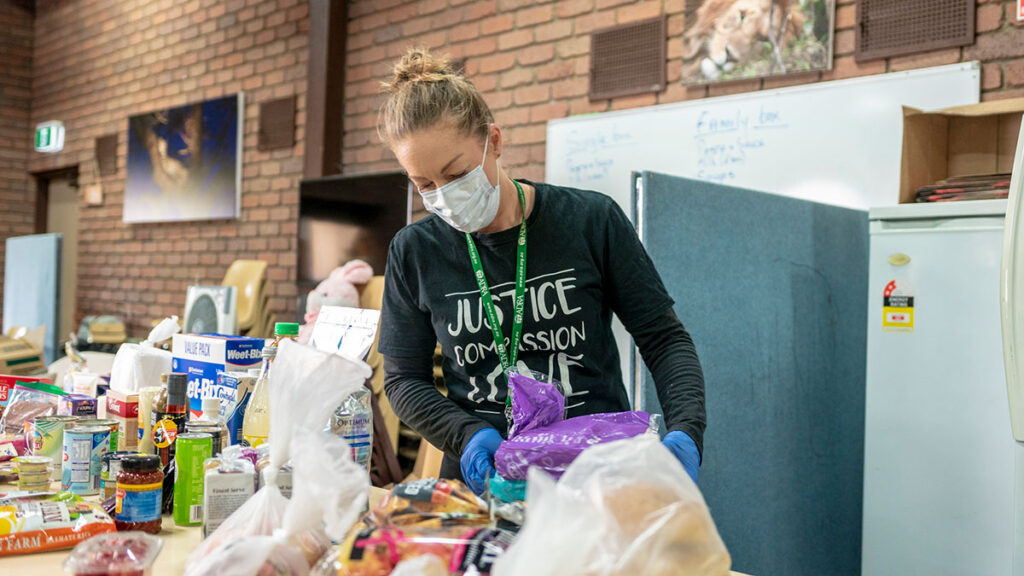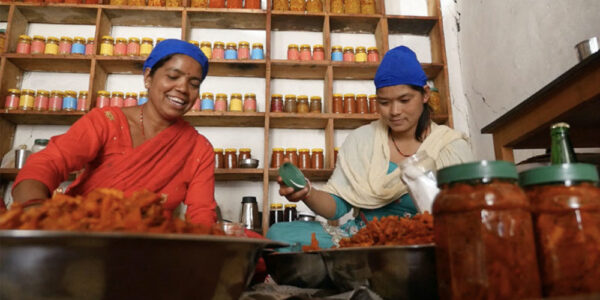One word that has been bouncing around in my mind for the past few weeks is hope.
While 2020 has certainly brought its fair share of uncertainty, doubt, and fear, I come back to the calming power of hope.
Jesus often spoke about hope, and His words hold a special kind of meaning right now: “In the world you will have tribulation. But take heart; I have overcome the world” (John 16:33, ESV).
I truly believe it is because of His overcoming that we can have hope, despite our current circumstances.
The world is in crisis, and no one is more deeply affected than those who are already vulnerable. But I have hope. Hope because I believe in a God who has already overcome the brokenness of this world, and hope because I believe that by acting together, we can help others overcome crises today and in the future.
“I was really struggling to scrape money together for even the basics, including food.”

This is what Jodie, who was at crisis point, says. A reduced disability pension and inability to work made her incredibly vulnerable.
“A friend told me about a place that would help me out with food,” she remembers. “So, he brought me down to the ADRA Food Pantry at the Ferntree Gully Adventist church [in Victoria, Australia].”
Here, Jodie received not just the food she needed but also the support and friendship she desperately missed.
“The first time I came in, I was in tears with thankfulness, just with the help and how lovely people were. I just wanted to be part of it. The very next week I started volunteering — that was two years ago,” she says. “It’s amazing to be a part of it.”
Having overcome her own crisis, Jodie is now helping others do the same. As Australia was forced into isolation, Jodie and the food pantry team quickly adjusted their program so that, instead of people coming to them, they’d take the food and friendship to people’s doors.
“People are so grateful to have deliveries because they don’t have transport or can’t get to the shops,” she says. “A lot of people haven’t been outside their doors for so long; they are just happy to see someone’s face, stand outside, and chat for a few minutes.
“A lot of people want to give back for the help they’ve received. Just like I did.”
Jodie’s experience is similar to another group of ladies from Nepal, who I’ll affectionately call “The Pickle Sisters” (for reasons you’ll soon understand). With ADRA’s support, these three women — who had only experienced housework, manual labor, and generational poverty — were transformed into budding entrepreneurs.
As women in a culture that didn’t value them, they faced ridicule at every turn, but soon they had a growing business selling pickles to expanding markets.
The Pickle Sisters overcame doubt, scorn, and the all-pervading crisis of poverty in their lives. And, just like Jodie, their next thought was to help other women do the same.
“Our objective is to help other women, who are only limited to kitchens, to become entrepreneurs and to earn an income by themselves,” they say.
As a result of the current crisis, more people at home and overseas have been made vulnerable, and those who were already vulnerable have been pushed to the edge.
I don’t ever recall overcoming anything significant in my life by myself. In all my memories of challenging times, there were always other people rallying around to support me and help me through. That’s the nugget: people help people overcome. Without people willing to help people, ADRA is nothing more than a name.
It’s people like Jodie and The Pickle Sisters that our country and our world need right now — people willing to serve and help the most vulnerable to overcome crises.
Across the country, we’ve seen closed churches transformed into hubs for helping others. And I believe they’re offering the world something crucial in this challenging time: hope.
The original version of this story was posted on the Adventist Record.


